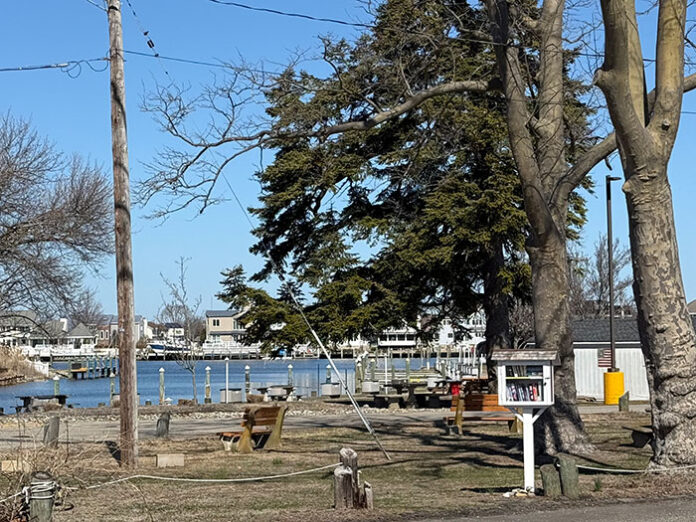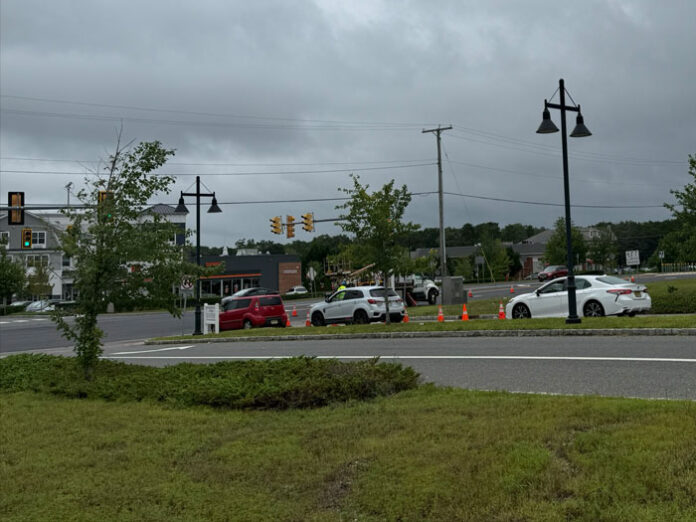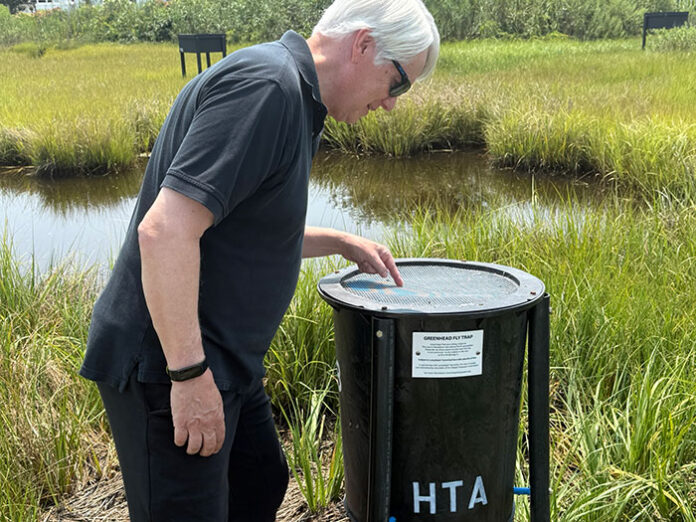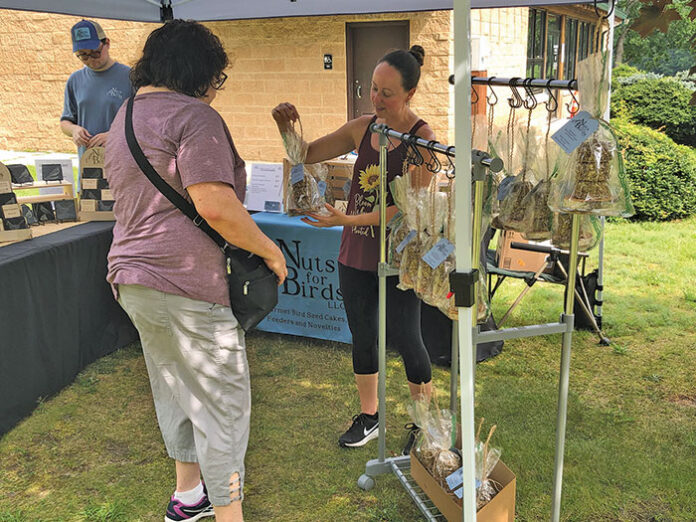Lacey Concerns over who actually owns the property beneath their docks have been rekindled after a letter was delivered to hundreds of Lacey Township waterfront landowners in mid-June.
In his letter, lawyer Harry Levin, who is representing the Lacey Elks Lodge, suggests that locals buy the submerged property rights that the Elks claim they have had since the 1990s.
In order to establish ownership and enable the Elks to sell the rights to nearby property owners, the Lacey Board of Adjustment approved a subdivision of 362 lots in April, including 302 properties in lagoons, 37 lots on the river, and 23 lots with both.
Levin stated, “The Elks specifically intend to transfer to each of you the rights granted to them for the Lagoon Bed Rights and/or the River Riparian Rights in front of your upland property.” In this manner, you will be able to combine the rights with your upland property in addition to acquiring them.
According to Levin, a quitclaim deed would be used to transfer each homeowner’s right of first refusal to buy the rights. He issued a warning that the rights might be sold to a third party if no one responded within 30 days or if the deal was not completed within another 30 days.
Lagoon lots with up to 59 feet of waterfront start at $2,100, while homes on the river or with both river and lagoon frontage cost $4,000.
If the owner of the land decides against the purchase, the Elks can sell the rights to any buyer, the communication states. The rights and terms of use would then be in the hands of an investor.
Approval of Subdivisions and Their Objectives
The Elks subdivision application, which was submitted as a means of resolving long-standing title uncertainties pertaining to the underwater acreage behind hundreds of waterfront properties, was unanimously approved at the Lacey Board of Adjustment’s special meeting on April 14.
Levin clarified during that discussion that the Elks had received the lagoon and riverbank rights from erstwhile developer Charles Pearl in 1996. He claimed that many homeowners were under the impression that those rights were part of their acquisition.
“We want to merge or consolidate that ownership,” Levin stated. Therefore, the new owner receives everything when the property is sold.
He underlined that New Jersey law only grants riparian rights in navigable rivers, such as the Forked River, and not in artificial lagoons. But the ground beneath the water was the problem, not the water itself.
Levin responded to the board’s question about whether accommodations would be made for people who couldn’t afford the purchase by saying that arrangements would be made to cover the acquisition fee when the homeowner sold their property. But that concern is not mentioned in the letter that was sent out weeks ago.
During a subsequent interview, Levin acknowledged that he had purposefully left out alternatives for postponed payment from the letter. Many people told me that everyone would say they couldn’t afford it, he said. That was going to ruin everything.
Given that the offer was stated as being available during the zoning board meeting, it doesn’t seem to indicate that it is no longer on the table.
Public Reluctance
Nina Mendelson, a resident, expressed her displeasure with the procedure and what she called a hurried push for quitclaim deeds during the June 12 Township Committee meeting. She stated that she would want a warranty document that ensures the vendor will give clear title.
“I’ve been here for 15 years, and in the summer I use the lagoon to dock my boat,” Mendelson said. It’s simply wrong for them to turn around and say, “You’re trespassing, and we’re going to sell it to a third party if you don’t buy it.”
Despite not having deeded rights to the submerged land, homeowners already pay waterfront taxes, thus she voiced concern about possible tax increases.
A forensic title business has been engaged by a group of impacted residents to look into ownership claims, according to Mendelson.
Committeeman Robert Laureigh, who is also a member of the Board of Adjustment, and Deputy Mayor Steven Kennis both expressed their unease. Although they recognize the cost to homes, they nevertheless view the elks as nice neighbors.
“We just changed it from six lots to 362,” Laureigh stated. Other than that, nothing changed. When all is said and done, the Elks now possess 360 lots as opposed to six.
The resolution was subject to several restrictions that favored the property owners over the applicant, Kennis continued.
Among those conditions were:
-A provision that only nearby upland owners receive the new properties.
-A limitation in the deed that prevents the amalgamated lot from being transferred to the upland owners without also transferring the adjacent acreage.
-A pledge to grant a right of first refusal to every homeowner.
-A possible due on sale provision that would enable those in financial difficulty to receive payment upon the sale of their house.
Additionally, the board mandated that the Elks obtain a review and letter of no interest from the Bureau of Tidelands Management of the NJ Department of Environmental Protection.
Officials: It’s a Personal Issue
Tim McDonald, a committeeman, recalls cautioning the Elks that pursuing the development would be a PR nightmare. He claimed to have first learned about the proposal six years ago while he was mayor.
According to Laureigh, this is really a private matter between the homeowners and the Elks. We are neither a real estate firm, an insurance provider, or a title business. We change the way that land is used.
Further explanation was provided by Township Attorney Chris Connors, who pointed out that the quitclaim deed only conveys any rights the Elks may have and lets the buyer decide their true worth.
According to Connors, the board provided excellent services to the residents of the lagoons. What service the Elks provided is unknown to me.
He made the point that a property owner may not be able to construct walkways, docks, or even replace bulkheads if they do not control the underwater land. Additionally, it might make state approvals for dredging more difficult, as these licenses occasionally need the riparian rights holder’s consent.
Connors cautioned that if a third party does wind up holding it, they may impose fees or refuse to provide you access at all.
What Happens Next?
On June 30, I met with three of the concerned individuals and their attorneys, together with Deputy Mayor Kennis, Administrator (Veronica) Laureigh, and Township Attorney Christopher Connors, according to Mayor Peter Curatolo. All sides seemed to agree that this meeting was friendly and fruitful. We will proceed from there, but I am confident that resident concerns have been addressed and that the Township of Lacey has acted legally while advocating for both the Elks and the concerned homeowners. I will draft and send a letter to Mr. Levin, the Elks’ attorney, asking for some clarifications regarding the timelines outlined in his letter to the affected homeowners. There is not much the Township can do at this stage because it is a real estate transaction between two corporations.
For the time being, homeowners have to choose between buying the rights being offered or running the danger of someone else doing so. Concerned citizens funded a forensic title research that could shed light on the Elks’ ownership claims.
But the broader implications remain murky, with neighbors caught between potential real estate limitations and a costly fix for a problem they didn t know they had.
This is neighbor fighting neighbor, as Laureigh stated quite bluntly. And that’s the reason this is so awful.












